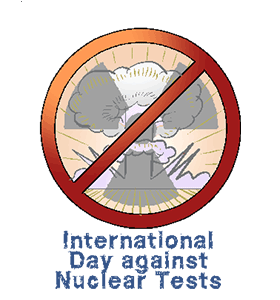International Day against Nuclear Tests
Quick Facts - CA
| HashtagsCompiled on | #IDANT, #AgainstNuclearTests |
|---|---|
| 2024 Date | August 29, 2024 |
| 2025 Date | August 29, 2025 |
2024 Holidays & Dates - US
| Canadian & Common Holidays | ||
| Misc. & Int'l. Observancesℹ | ||
| Christian Holidays | ||
| Jewish Holidays | ||
| Muslim Holidays |
|
|
›
|
|
